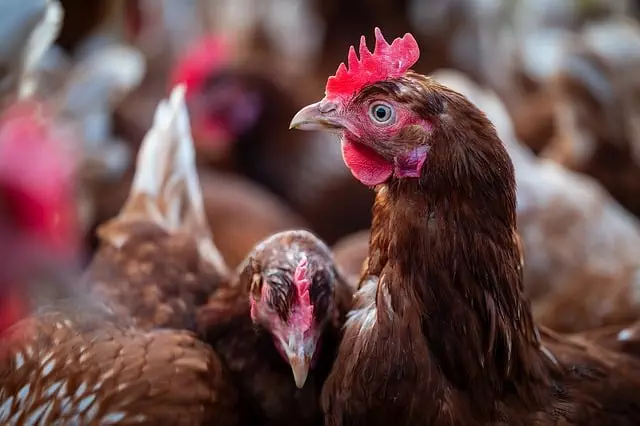Yard waste removal and recycling are crucial practices for environmental sustainability. By composting organic materials like lawn clippings, leaves, and kitchen scraps, communities convert these into nutrient-rich compost, which supports ecosystems and reduces the need for chemical fertilizers, thereby lessening the carbon footprint and promoting a self-sustaining cycle of renewal and growth. Effective yard waste recycling generates high-quality compost beneficial for both urban and rural landscapes, while also mitigating methane emissions from landfills. Educational initiatives, such as workshops, government programs, and informational materials, are vital for encouraging homeowners to adopt sustainable yard waste management practices, fostering a collective effort that contributes to environmental conservation and the protection of natural resources. Local governments and community organizations have implemented comprehensive programs to advance yard waste recycling, providing guidelines on proper composting methods and transforming organic waste into valuable compost, which enhances soil health and reduces greenhouse gas emissions. Homeowners' active participation in DIY composting further aids in this effort, creating a greener and more sustainable community environment by recycling organic matter and cutting down on landfill contributions.
Composting and recycling are pivotal practices in safeguarding our environment, particularly concerning yard waste. This article delves into the transformative role of these eco-conscious approaches, starting with an overview of yard waste removal’s environmental footprint. We will explore the benefits of composting as a cornerstone of sustainable yard management and highlight effective local programs for yard waste recycling. For those interested in hands-on composting solutions, we provide practical DIY strategies tailored for homeowners and gardening enthusiasts. Join us to uncover how these practices contribute significantly to environmental health and how you can partake in this green revolution.
- Understanding Yard Waste Removal and Its Environmental Impact
- The Role of Composting in Sustainable Yard Management
- Local Programs and Best Practices for Yard Waste Recycling
- DIY Composting Solutions for Homeowners and Gardening Enthusiasts
Understanding Yard Waste Removal and Its Environmental Impact

Yard waste removal and recycling play a significant role in sustaining environmental health by diverting organic matter from landfills and returning nutrients to the soil. Traditional yard waste disposal methods often involve sending lawn clippings, leaves, and tree trimmings to landfills, where they decompose anaerobically, producing methane, a potent greenhouse gas. In contrast, yard waste recycling through composting transforms these materials into valuable organic matter that can enhance soil structure, fertility, and water retention capacity, thereby supporting local ecosystems and reducing the need for chemical fertilizers. Communities that implement comprehensive yard waste recycling programs not only mitigate their carbon footprint but also contribute to the creation of high-quality compost, which can be used in both residential and agricultural settings. This not only reduces the environmental impact of yard maintenance activities but also fosters a cycle of renewal and growth that is beneficial for both the environment and agriculture.
Furthermore, educating homeowners on the benefits and methods of yard waste removal and recycling is crucial for the widespread adoption of these practices. Workshops, local government initiatives, and educational materials can demystify the composting process and empower individuals to make eco-friendly choices. By understanding the environmental implications of their actions, residents are more likely to participate in community composting programs or start their own backyard composting systems. This grassroots approach to waste management not only promotes sustainability but also engages communities in a collective effort to reduce waste and protect natural resources.
The Role of Composting in Sustainable Yard Management

Yard waste removal and recycling play a pivotal role in sustainable yard management, as they help divert organic materials from landfills and return nutrients to the soil. Composting is an eco-friendly practice that transforms kitchen scraps and yard trimmings into valuable humus, which can then be used to enrich garden soils. By engaging in composting, homeowners and landscapers can significantly reduce the volume of waste they generate, cutting down on the environmental impact associated with traditional waste disposal methods. This not only conserves landfill space but also aids in reducing greenhouse gas emissions that are released when organic matter decomposes anaerobically.
Furthermore, composting contributes to a more resilient and self-sustaining ecosystem within the yard by promoting soil health, biodiversity, and the growth of beneficial microorganisms. It is a cost-effective approach that can be implemented at both small and large scales, from individual households to community gardens and municipal landscaping projects. Through education and awareness campaigns on yard waste removal and composting, communities can foster a culture of sustainability, where residents are empowered to take responsible action in managing their yards’ organic waste. Such initiatives not only enhance environmental stewardship but also encourage a deeper appreciation for the natural resources we depend on daily.
Local Programs and Best Practices for Yard Waste Recycling

Local governments and community organizations have implemented various programs to address yard waste removal and recycling, recognizing its environmental significance. These initiatives often include educational components that teach residents about the proper methods for composting organic materials such as leaves, grass clippings, and garden trimmings. By converting these waste products into nutrient-rich compost, communities reduce landfill usage, lower greenhouse gas emissions, and foster healthier soil. These programs encourage residents to participate in yard waste collection events, where organic matter is collected and processed into compost. This not only diverts waste from landfills but also provides a valuable resource for local gardens and agricultural lands.
Best practices for yard waste recycling emphasize the importance of segregating yard waste from other types of waste year-round. Many successful programs provide residents with clear guidelines on what can be composted, including specifics on acceptable materials and sizes. They also offer practical tips on how to manage composting at home, such as selecting an appropriate composting system, understanding the carbon to nitrogen ratio for optimal decomposition, and knowing when the compost is ready to use. Additionally, these programs often highlight the benefits of community composting initiatives, where neighbors collaborate to compost collectively, thereby amplifying the positive environmental impact. Through these educational efforts and hands-on activities, communities can significantly enhance their yard waste removal and recycling practices.
DIY Composting Solutions for Homeowners and Gardening Enthusiasts

Homeowners and gardening enthusiasts play a pivotal role in sustainable waste management through DIY composting solutions. These individuals can significantly reduce their yard waste by setting up a compost system at home, which not only recycles organic matter but also enriches the soil with nutrients. A simple compost bin or pile can be created using accessible materials like wooden pallets or old trash cans. The key to effective composting lies in balancing green (nitrogen-rich) and brown (carbon-rich) waste, ensuring a constant supply of moisture and air to expedite the decomposition process. Kitchen scraps such as fruit peels and coffee grounds complement yard waste like grass clippings and fallen leaves, leading to a fertile compost that can be used to nourish home gardens.
Moreover, integrating yard waste removal and recycling practices into DIY composting enhances the environmental impact of these efforts. Instead of sending organic matter to landfills, where it decomposes anaerobically and produces methane—a potent greenhouse gas—composting at home ensures that this waste is repurposed constructively. Homeowners can further minimize their ecological footprint by composting properly, which can reduce the need for chemical fertilizers and pesticides. This not only promotes a healthier garden ecosystem but also contributes to a larger vision of community sustainability, where the principles of reduce, reuse, and recycle are actively applied in everyday practices.
Effective yard waste management through composting and recycling not only streamlines local environmental efforts but also underscores a community’s commitment to sustainability. The insights presented in this article demystify the process of yard waste removal, highlight its significant environmental impact, and offer practical solutions for homeowners and gardening enthusiasts to engage in these eco-friendly practices. By implementing the best practices outlined, communities can significantly reduce landfill waste, foster healthier soil through composting, and contribute to a greener future. It is a collective effort that, when embraced by individuals and local programs alike, promises tangible environmental benefits.


